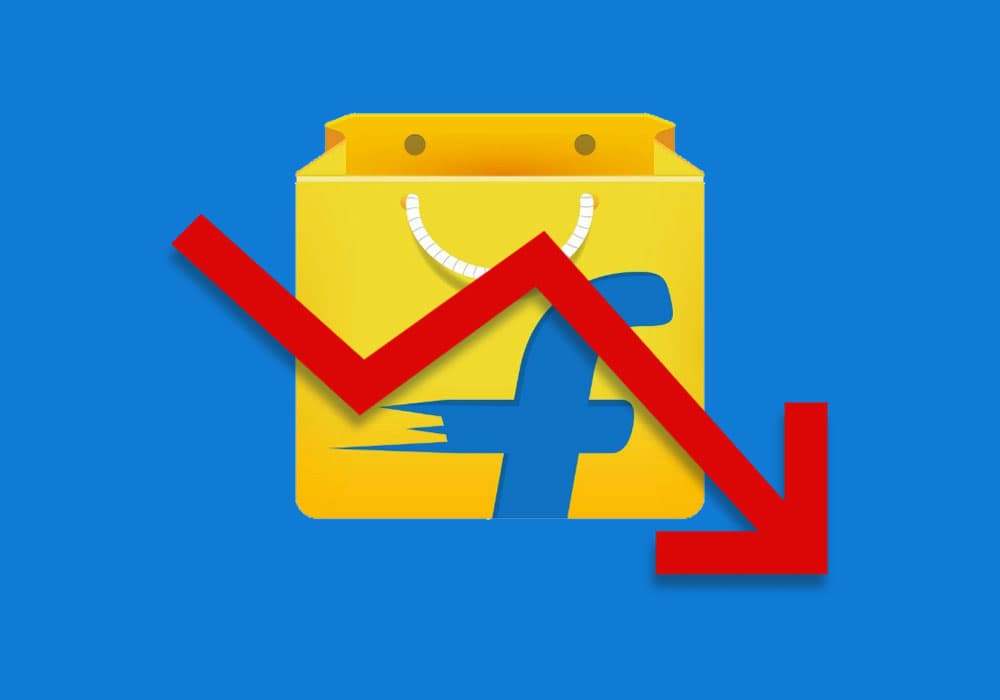
While reports of Flipkart raising a new round of funding at a $10 Bn-$12 Bn are still making the rounds, Morgan Stanley mutual fund has marked down Flipkart’s valuation for the fifth time in a row.
As per new filings, Flipkart’s valuation is pegged at about $5.37 Bn. This time, the Morgan Stanley mutual fund has assessed the value Flipkart’s shareholding to $50.51 per share, as of December 2016, as compared to $52.13 per share in September 2016.
In November 2016, investor Morgan Stanley had marked down the value of its Flipkart shares by 38.2% and pegged its valuation at $5.54 Bn.
The fund first invested in the ecommerce marketplace when it raised $160 Mn, in October 2013. The decrease in valuation began in February 2016, when Morgan Stanley marked down Flipkart shares by 27%. Later, in May 2016, for the second time in a row in a successive quarter, Morgan Stanley Mutual Fund Trust, lowered the value of its shares in Flipkart by 15.5%. It pegged Flipkart’s valuation at $9.39 Bn.
The company was valued at $15.2 Bn in its last round of funding, when it raised $700 Mn from existing investors, in July 2015.
Morgan Stanley is not the only investor to have downgraded Flipkart’s valuation. In January 2017, US-based mutual fund investor T. Rowe Price reduced Flipkart’s valuation by another 4% to about $9.9 Bn. T. Rowe Price had invested about $100 Mn in Flipkart, in December 2014, when the firm raised $700 Mn funding. It also further marked down Flipkart shares by 15% in April 2016.
Later that month, a Fidelity managed mutual fund also downgraded its valuation by 36.1%. The company is now currently valued at $5.56 Bn, as per Fidelity.
In February 2017, it was reported that Flipkart raised about $38.7 Mn (INR 260 Cr) from media giant Bennett, Coleman and Co. Ltd (BCCL). The funds were raised by selling a small stake to BCCL, for cash along with advertising space, as per regulatory filings. Later it was reported that Flipkart is also in talks with Microsoft Corp., eBay Inc., PayPal Holdings Inc., Google Capital and Tencent Holdings, to raise about $1.5 Bn.
According to Morgan Stanley, the Indian ecommerce market is estimated to be $119 Bn by 2020, a strong reason why homegrown and international ecommerce players are looking to establish a stronghold in the Indian market. Homegrown and ecommerce players are looking to establish a stronghold int he Indian market. In December 2016, Amazon invested a fresh capital of $295 Mn (INR 2,010 Cr) in its main Indian unit in a bid to gain an edge over competitors.
In June 2016, Amazon announced that it would infuse $3 Bn in India in the next few years to take on its rivals. At the same time it was reported that Chinese ecommerce giant Alibaba was setting up its first office in India in Mumbai. In May 2015, through its marketplace AliExpress, Alibaba entered the Indian ecommerce market. In August 2015, Alibaba invested $500 Mn in Snapdeal. Currently, it owns 40% stake in Paytm and 3% stake in Snapdeal, among others.
(This development was reported by ET.)































 Ad-lite browsing experience
Ad-lite browsing experience